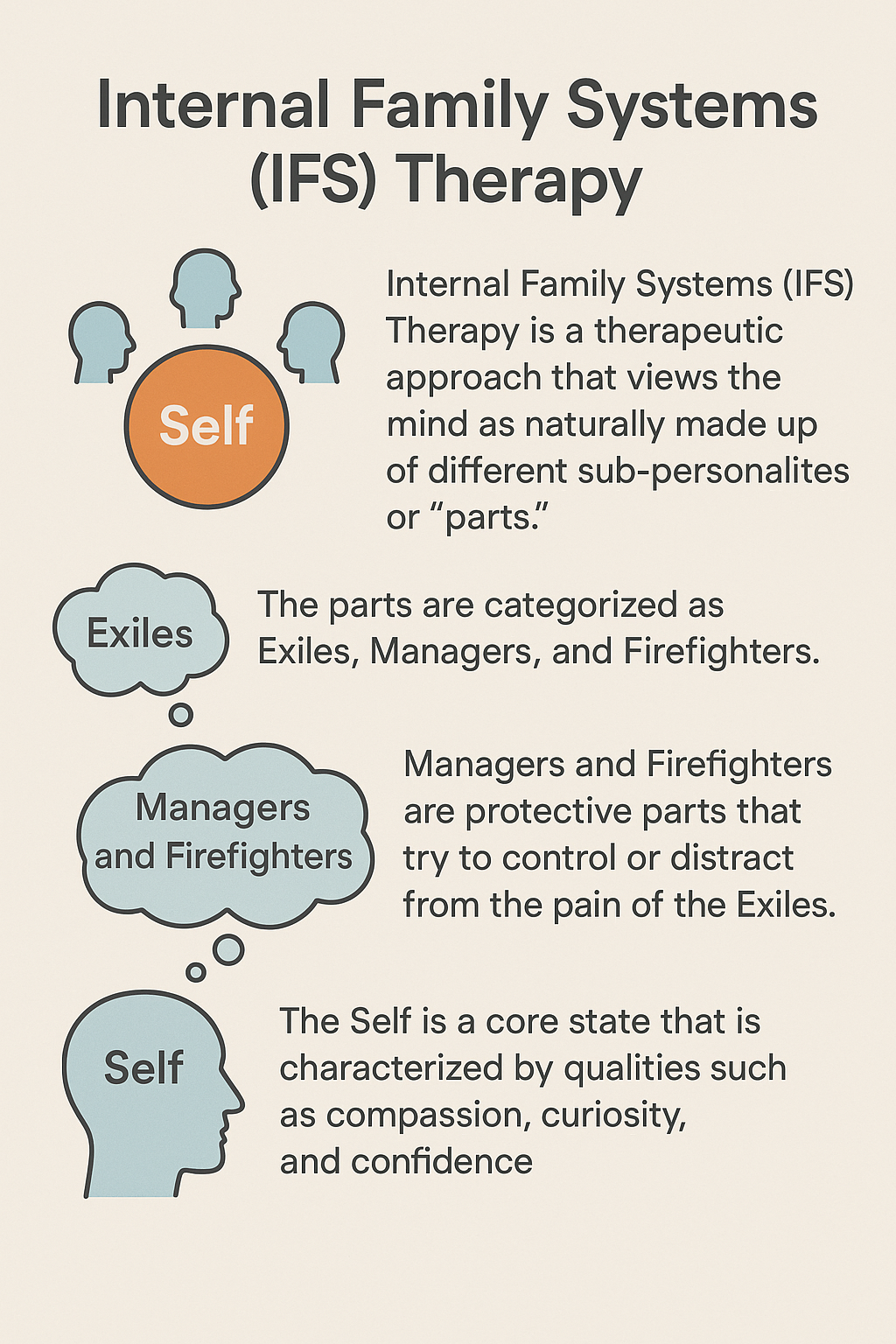Internal Family Systems (IFS)
No bad parts

Internal Family Systems (IFS) Therapy is a transformative, evidence-based model of psychotherapy developed by Dr. Richard Schwartz in the 1980s. At its core, IFS posits that the mind is naturally made up of distinct parts, each with its own perspectives, emotions, and motivations. Rather than viewing these parts as signs of pathology, IFS sees them as normal and healthy components of the psyche that can sometimes become extreme or unbalanced due to life experiences. Central to IFS is the concept of the "Self," a core of calm, compassion, and confidence that exists within every individual and can guide the internal system toward healing and harmony.
The parts within the IFS framework are typically divided into three categories: Exiles, Managers, and Firefighters. Exiles are vulnerable, wounded parts that carry the pain of past traumas. Managers are protective parts that work to prevent the individual from feeling the pain of the exiles, often by promoting control, perfectionism, or compliance. Firefighters, on the other hand, act impulsively and dramatically to distract from emotional pain when it breaks through, sometimes leading to behaviors like addiction or rage. IFS therapy helps clients build relationships with each of these parts, understanding their roles and working gently to heal the underlying wounds.
A key aspect of IFS therapy is the belief that every part has positive intentions, even if their actions seem harmful or self-destructive. The therapy is non-pathologizing, meaning it does not label thoughts or behaviors as "sick" or "bad," but rather as efforts to protect the person in ways that might have made sense at one point in time. This approach fosters a deep sense of self-compassion and acceptance. Instead of trying to eliminate or overpower parts, IFS helps people negotiate with them, allowing for internal cooperation and greater emotional balance.
